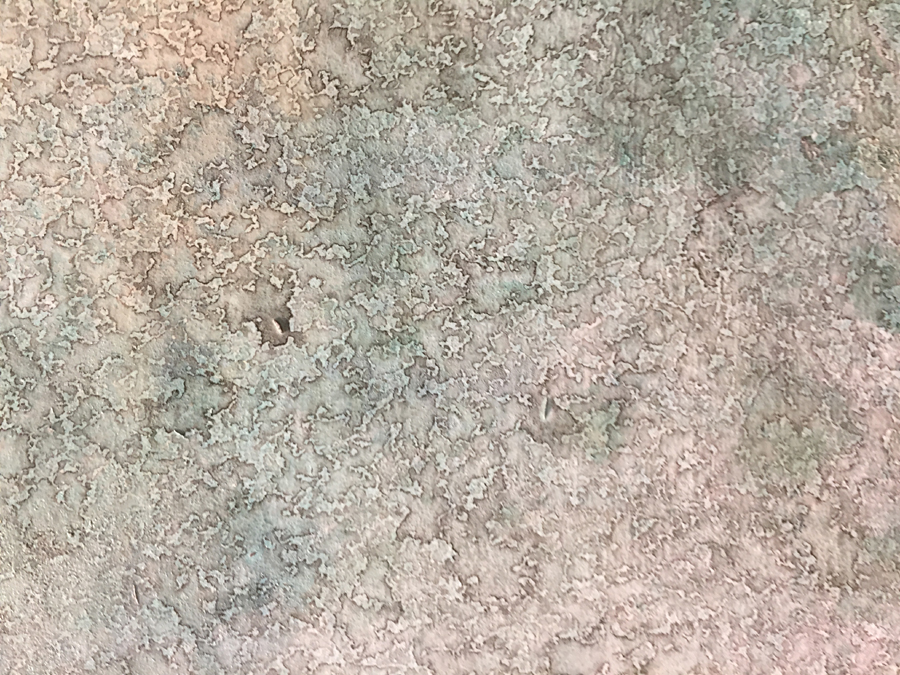
The name means black event: think 350 Hiroshimas. You’d drive out of town, see a cow wrapped in cellophane. Beside her, an old woman, also in cellophane.
Dogs and cats did not know to be afraid. Soldiers came to shoot them for their radioactive fur, loading the bodies in trucks. We wondered, What about the birds?
The bees knew first. They did not return for six years. It became a crime to eat the tomatoes from our gardens. They made us pour out the milk. I had a cat, Vaska, who saved me from being eaten by rats in my bed, but in the winter he was gone. Starving cats ate their kittens.
Warnings came: breast milk was radioactive.
Who’s to blame? was a question we only asked in the beginning. Later it was simply, What now?
An infant, mouth to his ears and no ears. Another born like a sac: no eyes, no mouth, four operations before her fourth day. It took four years to get them to admit that the reactor was the cause. The mother needed to know that it was not the fault of their love.
Soldiers removed the top layer of soil. Everything alive was contaminated. They drank vodka with goose shit, for protection.
It’s an old story: Prometheus steals fire, Adam bites the apple, Frankenstein defies death. They called the atom the peaceful worker. They laughed in the face of God and then the reactor blew up. Then they told us: here is punishment for our sins. I ripped my dress on a fence; my brother broke a milk bottle. We hid these transgressions from our mother.
In school, children drew upside-down trees, red rivers, and cried. In the abandoned areas, time moved anyway, without people around. Like childhood, said the old man before he died.
Did you hear about the priest called to Auschwitz? When the Nazis announced plans to starve men to death, he said, “Take me instead.” He sang aloud for three weeks until he got lethal injection. Unless a grain of wheat falls to the earth and dies, it remains alone. He knew. There are better shields than flesh, but you work with what you are given.
See the woman: In her yard are the bodies of her parents, brother, husband, daughter. I love my graves, she says, as she tends to them, singing.
Her husband was a liquidator. The doctors said, stay away, that is no longer a man. In the final days, bits of his skin would come off in her hand where she held him. It took fourteen days for his liver to come spewing out of his mouth.
Here is no mystery: flesh tears, bacteria invade.
Nails hold a body at its weakest point, against the wood of the tree of knowledge, fastened on a crossbeam of cypress.
If no one looks for the body in the tomb, then no resurrection. The women went. They hid in the ancient forests and crawled back under the barbed wire. Now they tend chickens.
Most walked away, to escape contamination. But this should tell you something. Outside the Zone, they labeled the milk: “for children” and “for adults.”
With Hiroshima at least you could see the cloud. This melts you from the inside out. One day we were sitting in the garden and the apple trees were right there, blooming, but we couldn’t smell anything.
Uranium decomposition: 238 half-lives. A billion years.
Thorium: 14 billion. How do you hold that?
What can you hold? A cat, a potato, a hand.
Don’t you worry about looters? the soldiers ask.
To steal what, my soul?
The dead are here, in the yard. You can talk to them just like the living.
The baby looked healthy, but I buried her at my husband’s feet. Cirrhosis of the liver, congenital heart disease: she absorbed the shock and I lived.
We were prepared for bombs. But the atom is everywhere. We learned to fear rain, snow, and love. How do you protect yourself from the things you cannot see?
Stories are always dog eat dog, man vs. nature, David and Goliath. But the monster beneath our beds we learn not to talk about; it lives in the spaces we abandon. Adults tell children, if you can’t see it, it must not exist.
I saw cesium pieces in my yard: bright colors the size of my handkerchief. Then I was not afraid, and I sat watching the birds and the elk and the planes that flew back and forth from the reactor, looking for answers.
If you remember the famine, it’s hunger, not radiation, that scares you. So cook the mushrooms and the wolves howl around your house and you sing.
Outside, we are lepers. Here, we wait together. Tell me, Who is the victim and who is the priest? Here we are both.
There is a man who stalks the reactor now, keeping watch. He explores the rubble, the rooms no one else will go into. There are thousands of workers tasked with erecting a sarcophagus around the site. He is keeping watch for them. He returns daily to the thing that kills him. He calls it his main enemy, his main friend.
What else can we hold it with, but our bodies? We need to place our fingers in the wounds.
If I stay alive, he says, I will leave the factory, become a shepherd.
Come inside now. I have jam from the garden. Oh my legs, I don’t want to stand anymore. Sit with me, drink. Look!
Stacey Johnson writes and teaches in San Diego County, where she is a current MFA candidate at San Diego State University. Her work has appeared in The Adirondack Review, A Year In Ink, and various small online publications. She lives with her daughter, Grace, who inspires everything.

Pingback: Contributors Winter 2019 | Rkvry Quarterly Literary Journal